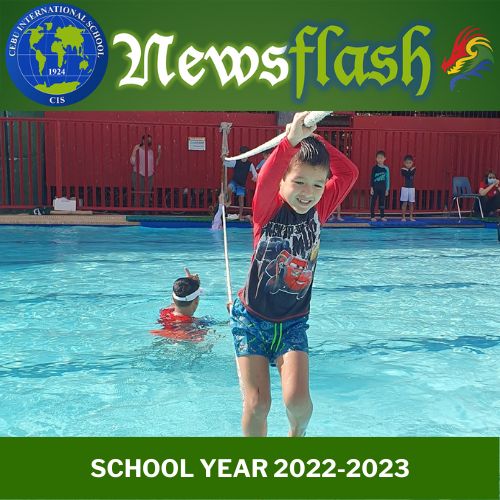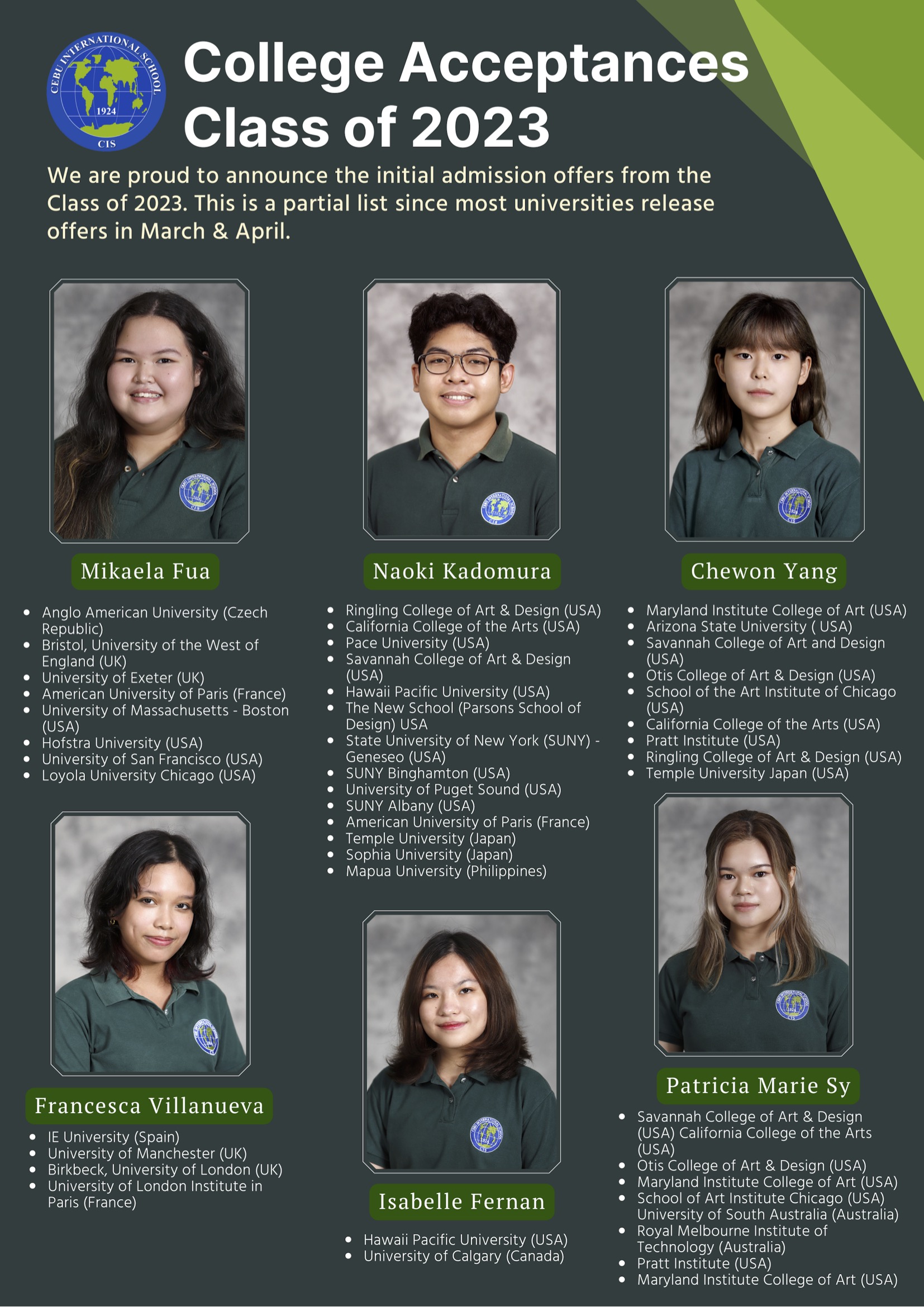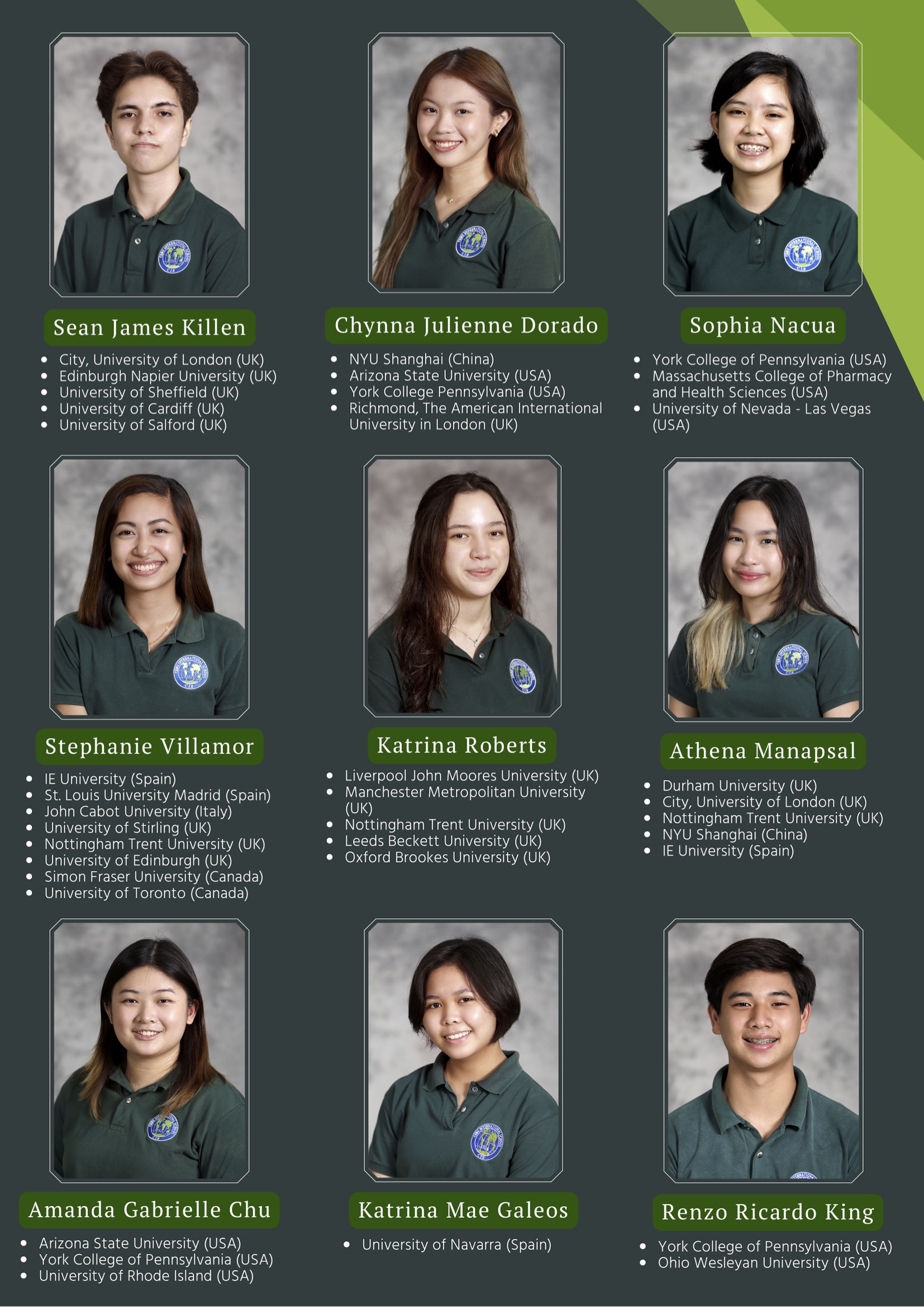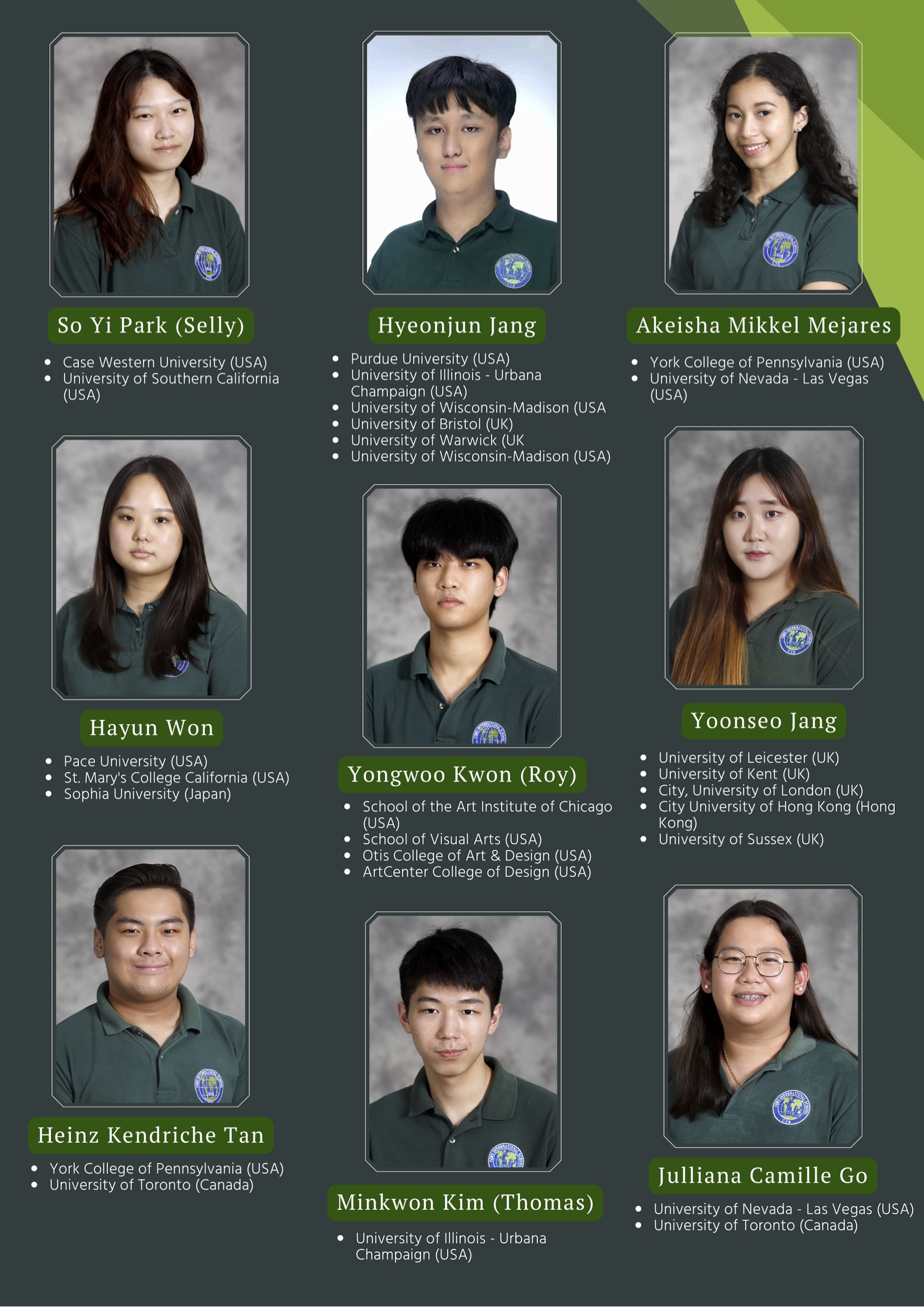
Principal’s Corner
by Mr. Andrew Powell, EY-12 Principal
The first Core Belief in our Guiding Statements is that learning is a joyful, creative and open-ended exploration. Joy can be defined as an emotion induced by well-being. It involves experiencing delight or happiness. Joyful learning in the context of education refers to the positive intellectual and emotional state of the learner(s) when an individual or group is deriving a sense of engagement and satisfaction from the process of learning. As our elementary school students engaged in Week Without Walls this week, I can confidently say that their experience lived up to this expectation. For many of our students, I know that it was the highlight of their school year.
Our students were provided with a range of purposefully planned activities that provided them with the opportunity to develop skills and attributes in ways that are not possible during regular classes. It was also a week of firsts for many children. Some of the activities that children engaged in included visiting a farm, learning First Aid, sewing, cooking, using tools, gardening, and learning to light a fire. Our Grade 2-5 students were also provided with the opportunity to sleep at school, which they thoroughly enjoyed. Students were highly engaged in their experiences while demonstrating a sense of wonder and curiosity.
A characteristic of the week was a sense of shared interest and purpose. Learners of all abilities were provided with the opportunity to interact meaningfully with various challenges while also interacting with one another in supportive academic and social interchanges.
These experiences would not have been possible without the commitment of our faculty, who certainly went above and beyond to support their students. We are very fortunate to have such a dedicated and professional group of educators working at the school.
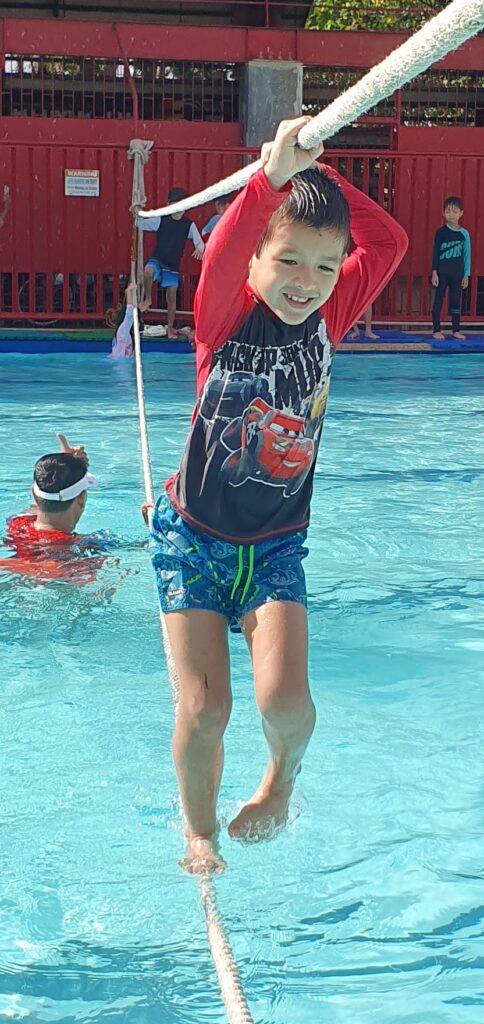
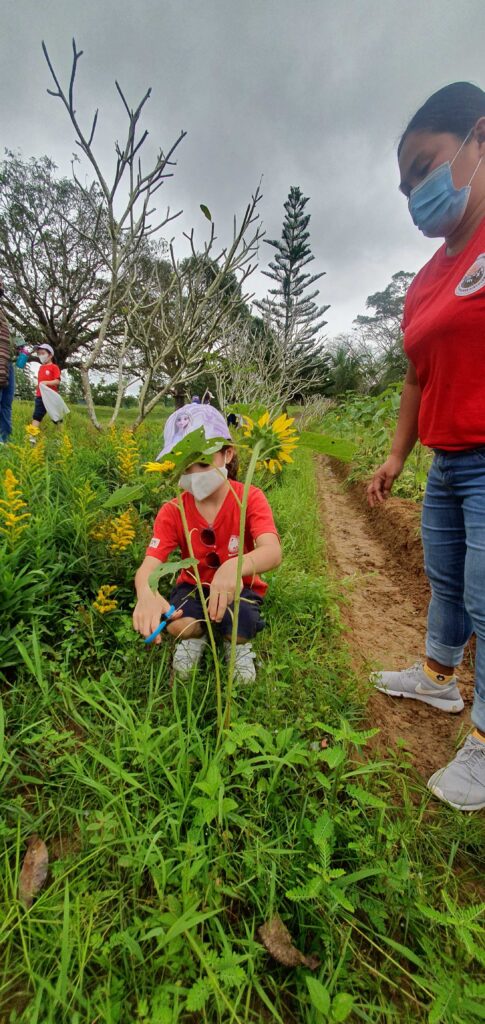
We look forward to offering a highly engaging experience to our MHS students from April 24 – 27. Planning is underway and has also included students so that their voices are heard, and interests accounted for.
Upcoming events of note
- Feb 13-20: G12 Mock Exams
- Feb 23: School Holiday
- Feb 24: Cebu City Charter Day (Public Holiday)
- Feb 28: CIS Parents Coffee Morning (8-9am CIS annex)
Please refer to the CIS Event Calendar for the complete calendar of school events.
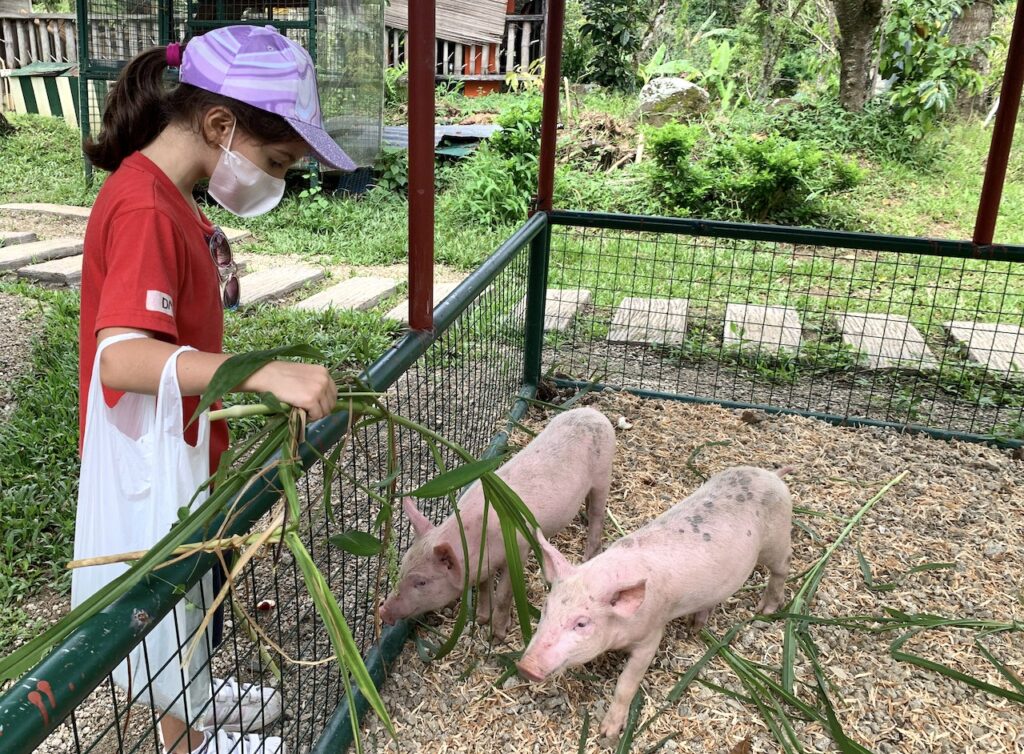
Music Class
by Ms. Marie Briones, Music Teacher
What is the Sound of Silence?
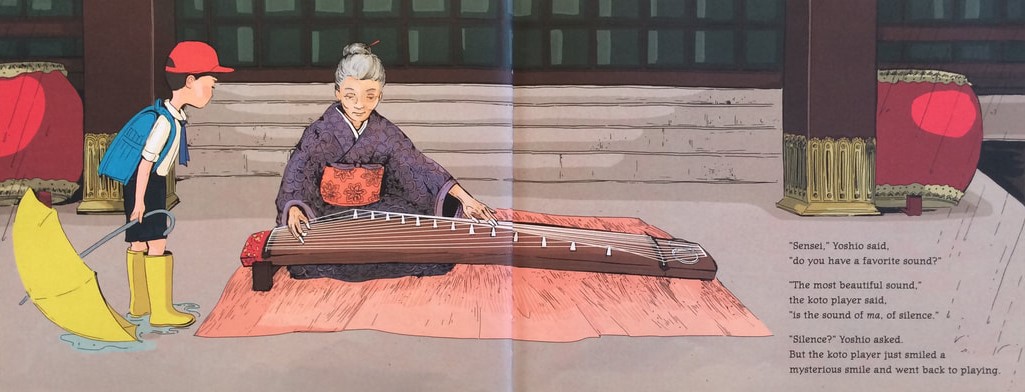
In our latest unit the K/G1s have been exploring “Sounds Around Us.” The students looked into how sounds can come from living and nonliving things. They also explored the sounds that they can imitate, sounds that are made by different materials, sounds from nature and the planets, and sounds from gadgets.
However, in order to develop IB learners who are open-minded thinkers and risk-takers, the K/G1s have been challenged to see (and hear) things from multiple perspectives. During their previous meeting, K/G1s listened to a book being read, entitled “The Sound of Silence” by Katrina Goldsaito. When asked about the importance and the relationship between sound and silence, the students immediately made connections between two seemingly opposing concepts, that of Sound and of Silence. Through their very own student-driven discussions, they recognized how both concepts are two sides of the same coin, and that Silence served both a pragmatic and an aesthetic purpose in relation to sound and the senses. Here are some thoughts from our open-minded thinkers:
Alison
Russell
Yoyo
Sander
Ito
Kiean
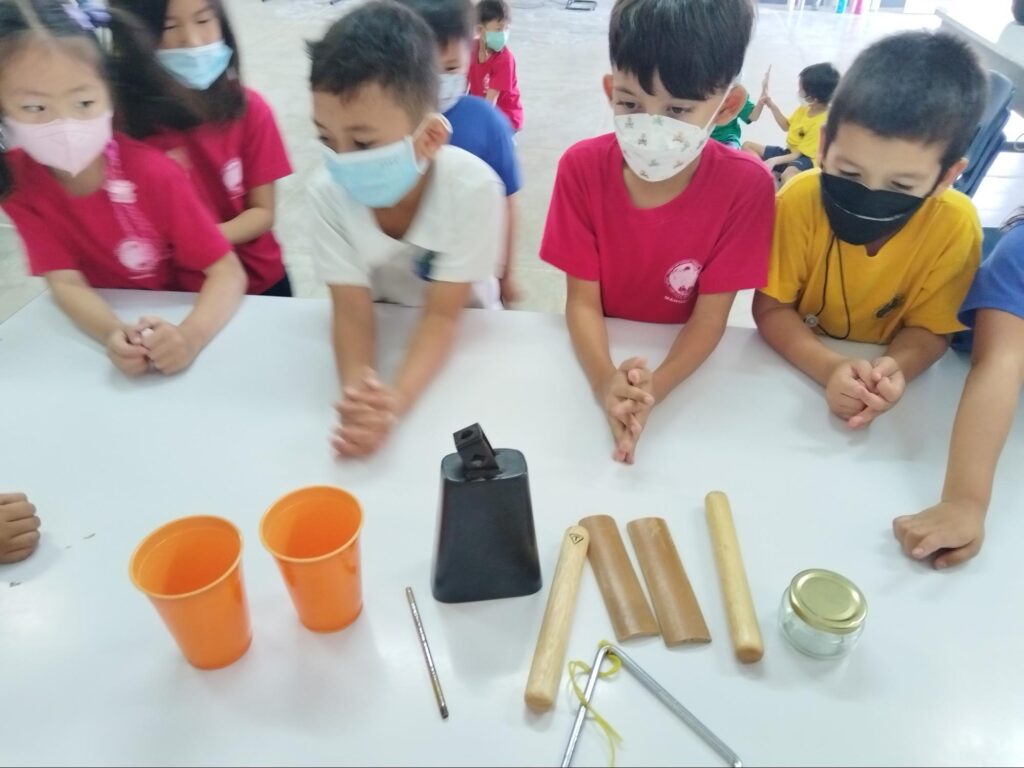
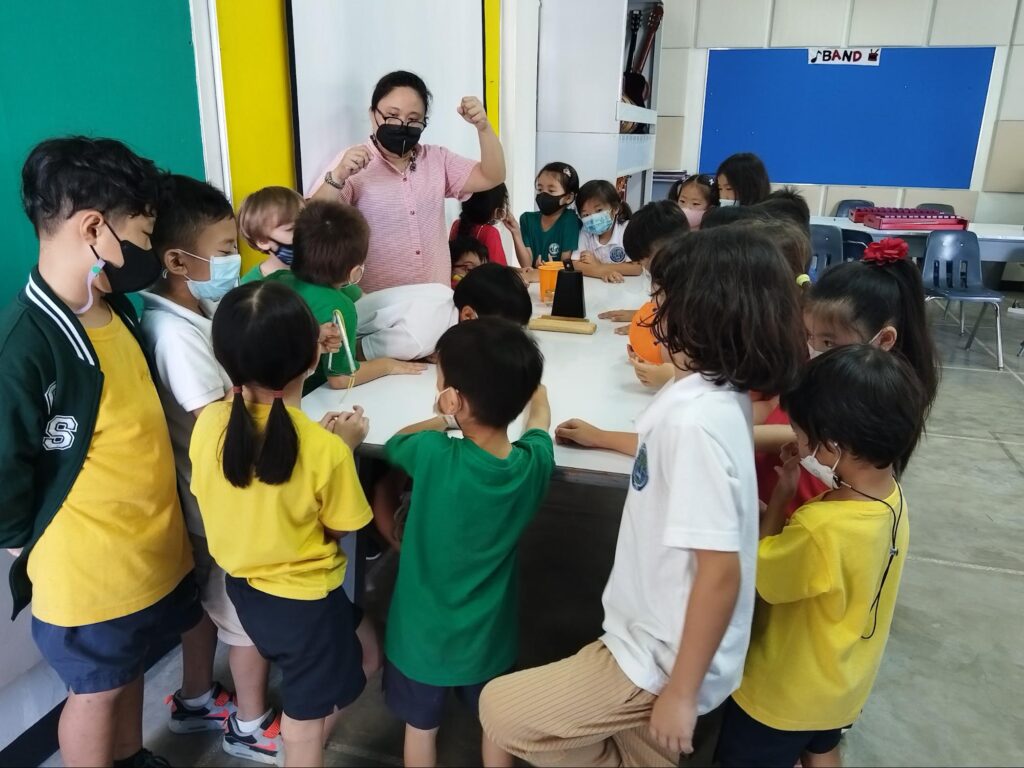
Grade 8 Science Class
by Ms. Christine Enrile, Science Teacher
Sustainable Gardens
“Sustainability involves Adapting scientifically tested Resources, for their appropriateness to perform specific Functions, that promote environmentally friendly solutions.” – Statement of Inquiry, IDU of Science and Design
The Grade 8 students have the opportunity to explore an interdisciplinary unit in Science and Design which focuses on sustainable gardens. They will do inquiry-based learning to promote recycling of water, reducing energy costs, sustainable use of materials and growing food in small spaces. To be able to do this, the students are learning scientific concepts on the classification and properties of matter as well as the changes they undergo. Several formative tasks and practicals were done to help the students gain a deeper understanding of the lessons.
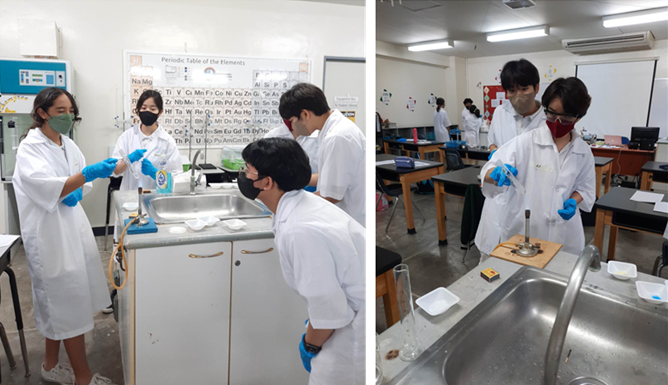
In this unit, the students will be creating their sustainable gardens in a designated area in school. This task will allow them to apply their transfer skills which challenges them to combine knowledge, understanding and skills to be able to create a sustainable product. In Science, the students will investigate the feasibility of the materials for the vertical garden scaffolding and the plant holders. They will need to consider the different properties of the materials as well as the reactions involved as these will be exposed to several environmental conditions. With this, the students have been engaged in testing the durability of several materials for the garden scaffolding. These include wood, aluminum, iron, and tin. They developed their own methodology, taking into consideration all relevant variables to make the testing scientifically fair and valid.

Kudos to the Grade 8 students for their diligence and for being critical thinkers!
Grade 11/12 Math Applications and Interpretation SL
by Ms. Maria Victoria Bacus, Math Teacher
As our seniors are completing their mock exams this week, here are some of the strategies they wanted to share, the do’s and don’ts before taking or during an examination as well as some common mistakes that were valuable in their learning.
Before Taking/During Examinations:
DO’s ![]()
| Stefen: Communicate with your teacher. |
| So Yi: Do your homework, it acts as revision and you would have to study less for the final exam. |
| Rhett: Do review previous exams to see common mistakes. |
| Yong Woo: Know how to use your Ti-84 calculator. |
| Lea: Do a review throughout the two weeks before the test is to happen. |
| Brenton: Maximize the formula booklet. |
| Renoa: Refer back to the powerpoint given by the teacher; this helps you recall what was discussed in class and makes it easier to study. |
DONT’s ![]()
| Akeisha: Do not spend most of your time on one question. |
| Rhett: Don’t do the hard questions first and the easy questions later. |
| Yoon Seo: Don’t leave any questions blank, always try to answer questions even if you don’t remember anything. |
| Jooha: Don’t submit the test without reviewing. |
| Rhett: Do not forget to put solutions in the answers to maximize the method points obtainable for the questions. |
| Andrew: Don’t procrastinate studying. |
| Chesca: Don’t underestimate your workload. It’s the gateway to procrastinating, reading through the syllabus and planning out what you need to study at least a week or two before the exam helps a lot. |
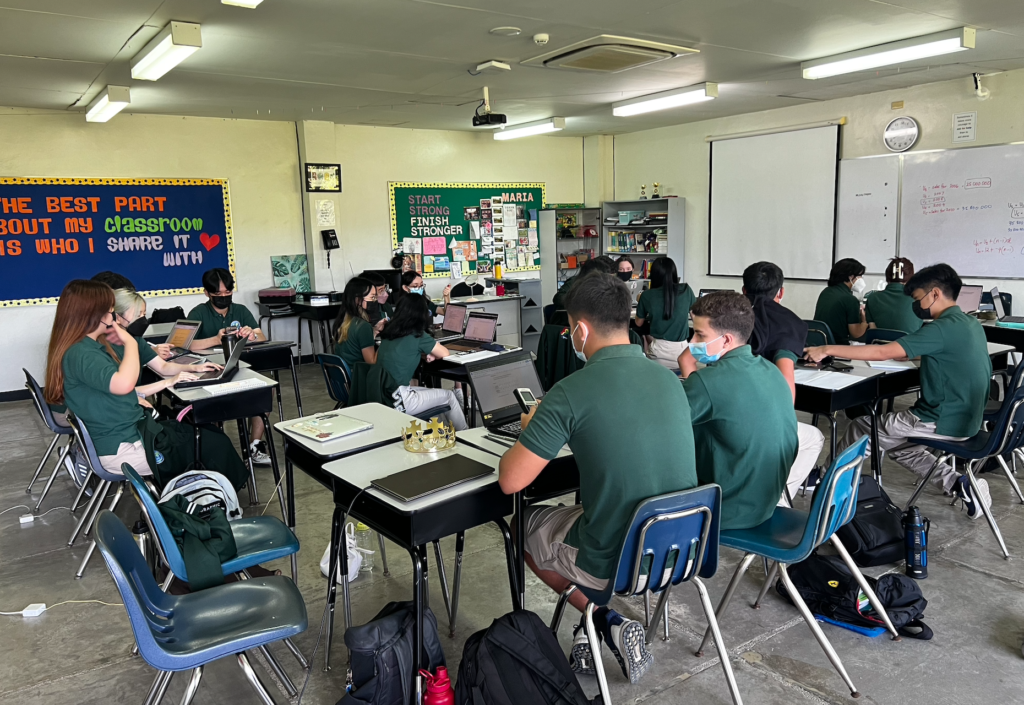
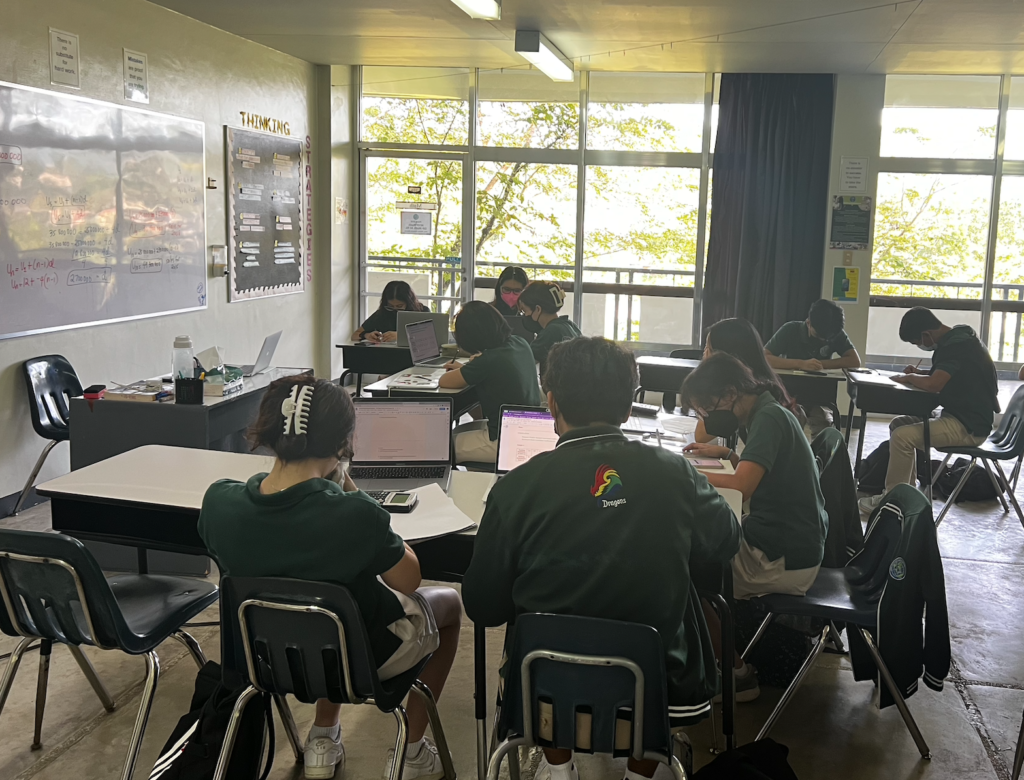
As the students worked through the different IB exam-style questions, here are some common mistakes that they hope to be avoided:
- Not reading the questions properly, not putting the answer in the correct units/format
- Not considering the command terms when answering an IB-style question.
- Not writing complete solutions and misreading some information
- Not reading before the exam. Reading before the exam helps you plan how much time you need for each question and which you need to focus on.
- Not using their formula booklet for hints.
- Not paying attention to the points available per question
- Not realizing that the questions are connected so one mistake in one number can affect the others
- Using the wrong formula in the formula booklet
Suggested Strategies for future Math AI SL students:
| Preparation always starts the moment the lesson is being presented. I take notes, make sure to participate in class in order to remember examples better, and review what I had learned that day through doing some practice problems or any assigned homework we have when I get home. – Sophia |
| Organize my answers in assessments neatly and compactly so that the rest of the question is easy to navigate and solve. – Rhett |
| I made sure to use flashcards for the topics where there was more memorizing involved or had formulas that weren’t in the formula booklet. – Jooha |
| Going over past papers allows you to have an idea of what type of questions may show up. – Stefen |
| Give myself breaks from studying, study with others and also independently, using online resources and notes. – Kat R. |
| Used online sources such as revision village in order to actively recall different formulas and solutions. – Athena |
| Spend more time studying instead of procrastinating and being distracted. – Karen |
| Practice past papers or correct my mistakes from past exams. – Daniella |
| Compiling the formulas and calculator routes needed for each topic, especially helpful for statistics as a lot of GDC calculations are needed. – Selly |
| Prioritizing the areas of the exam wherein I didn’t feel confident in and dedicating time to answering problems from paper 1 and paper 2 of old lessons to practice. – Naoki |
| Working with classmates to figure out review questions together (it’s more fun than doing it alone). – Renoa |
| Review the processes of the concepts, answer some questions that will cover the concepts, and watch revision videos. – Akeisha |
| Did all of the homework and past class work again as practice. – Andrew |
| Highlighting the subjects in the study guide that I needed the most work on. – Kat G. |
| Listening in class and booking ELOs were a big help. Also planning my time to study. – Chesca |
| I believe past papers are the best tool to study. – Lea |
Grade 11 students have been introduced to Coordinate Geometry, Voronoi Diagrams and Trigonometry this semester.
Students were busy exploring various resources to help them demonstrate their understanding.
They have used Geogebra and/or Desmos to investigate different concepts as well as gain a better understanding of the graphs of linear equations.
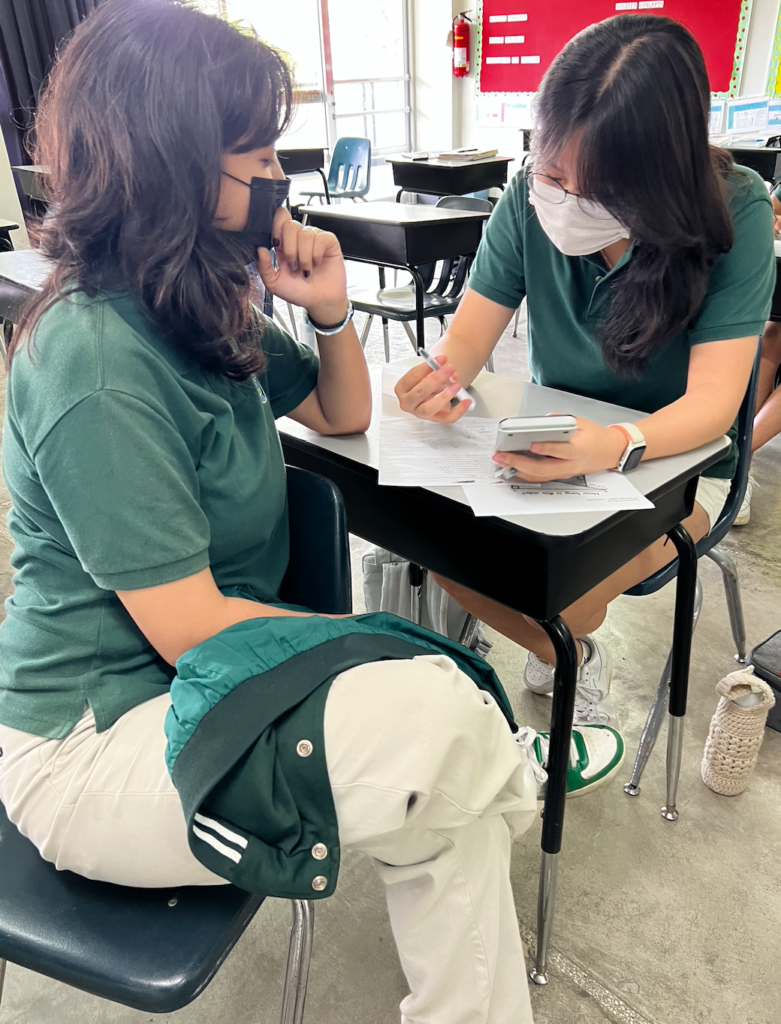
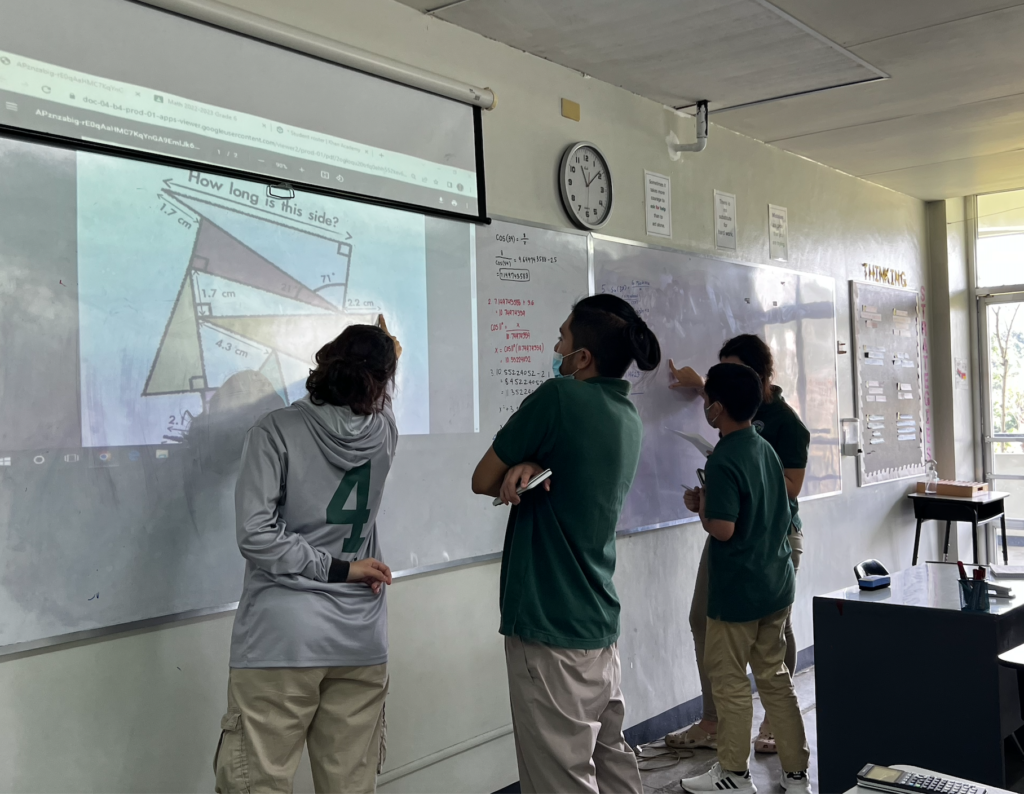
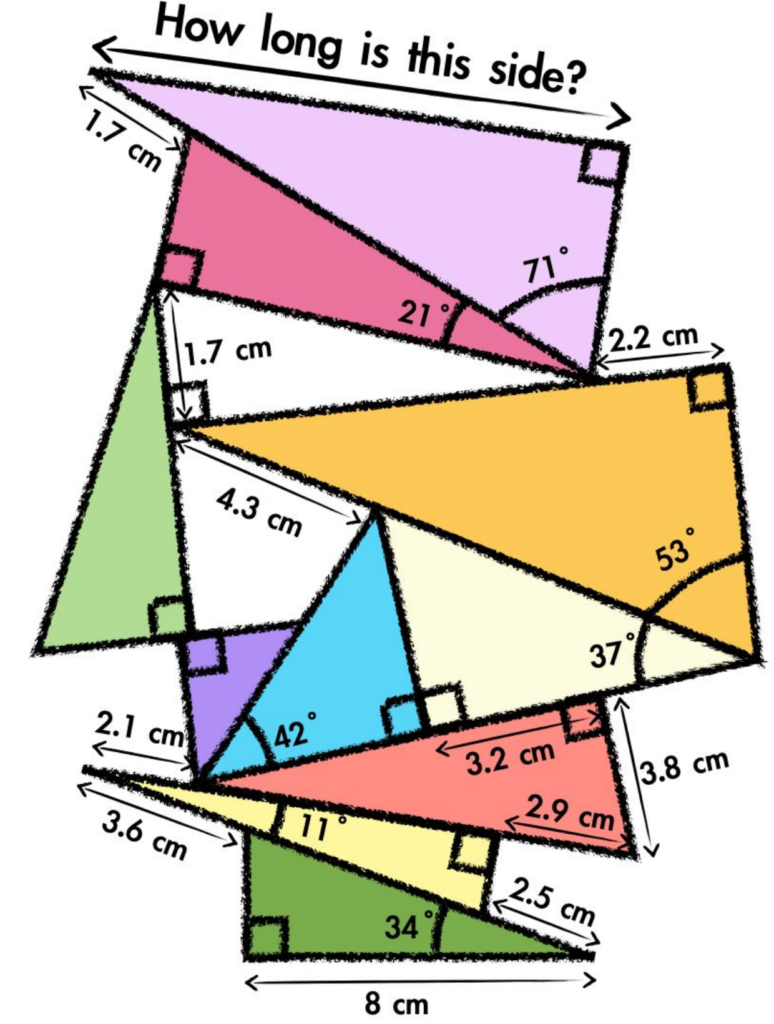 Learning how to use different ratios to find missing information, solve problems and how it is applied in the real world are some of the essential skills for this unit.
Learning how to use different ratios to find missing information, solve problems and how it is applied in the real world are some of the essential skills for this unit.
As students continue to enhance their knowledge in a variety of contexts, a cumulative task on applying Pythagorean theorem to find missing sides of right triangles was assigned.
This provided students with the opportunity to work through a series of trigonometry problems that built on one another and to provide multiple and appropriate solution paths.
Here is the trigonometry pile up task by William Emeny:
Student Reflections:
As the students worked through this problem, some of them noted the following crucial steps:
Ara
Andy
Chiara
Victoria
Ivan
Sofia
Seohyun
Dragon’s Print

As the end of the third quarter approaches, dealing with exam anxiety and stress can be extremely overwhelming. To serve as a distraction and to help you relax, Dragon’s Print has compiled 5 must-see films to add to your watchlist. Ranging from Fantastic Mr. Fox to Everything Everywhere All At Once, you are sure to find a film you’ll love. To see all the recommendations visit us at https://dragonsprint.cis.edu.
Dragon’s Report Card
As the second season of ISAC ends, the CIS Dragons share their experience playing girls basketball and boys football against other international schools in the Philippines! Hear from captains Andrew and Sofia, and players Liam and Arianna on the challenges the teams faced, their own advice, and more!
College/Careers Counselor Corner
by Ms. Jenny Basa, College/Careers Counselor Corner
Update from the University of the Philippines (for students from the Class of 2024 who are interested in applying to UP)
The UP College Admission Test is back! UPCAT will be held on 3 – 4 June 2023. The UPCAT 2024 application period will officially open in the first week of March 2023 with the online portal Form 1 (Applicant’s Personal Data) again accessible. Ms. Basa will hold a series of sessions for all students who will apply to UP in March when the applications open. Click here for the official announcement from the UP Media & Public Relations Office.
College Events (Virtual and Face to Face)
DATE
February 19,
Sunday
Radisson Blu
1:00 – 5:00 PM
Link to register
AUSTRALIA EDUCATION FAIR: Meet university reps from Australian universities and learn about their programs.
Below is the list of participating universities:
| 1. Western Sydney International (WSU) | 19. Australian Business Management |
| 2. Swinburne University of Technology | 20. William Angliss Institute |
| 3. Murdoch University | 21. Monash University |
| 4. Australian Catholic University (ACU) | 22. UTS College |
| 5. Imagine Education Australia | 23. International College of Management, Sydney |
| 6. James Cook University Australia (JCU) | 24. Deakin University |
| 7. Queensland University of Technology (QUT) | 25. Southern Cross University |
| 8. Edith Cowan University | 26. Kaplan Business School |
| 9. Canterbury Institute of Management | 27. Alma Mater College Australia (AMCA) |
| 10. Macquarie University | 28. The University of Adelaide (UoA) |
| 11. KCA Education | 29. Academia Australia |
| 12. The Gordon Institute of TAFE Australia | 30. University of Wollongong (UOW) |
| 13. Griffith University | 31. Federation University Australia |
| 14. University of New England (UNE) | 32. Flinders University |
| 15. Charles Darwin University (CDU) | 33. Canberra Institute of Technology |
| 16. University of Canberra (UC) | 34. University of the Sunshine Coast |
| 17. UNSW | 35. Kent Institute |
| 18. Central Queensland University (CQU) |
February 21
Tuesday
11:00PM
Link to register
Bocconi University – Don’t miss the chance to learn more about life at our Summer School by listening to past Students who share their experience, Faculty who are going to teach labs and Staff organizing the program.
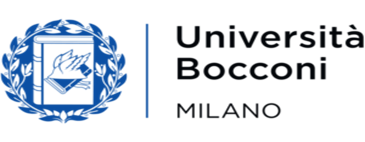
March 23
Thursday
9:15 – 10:00 AM
For all Grade 11 students
Venue: Canteen Annex
Writing a College Essay – A hands- on session for all Grade 11 students with Mr. Christian diGregori0 – Head of International Recruitment for York College of Pennsylvania
SAT UPDATE for 2022-2023
| SAT Test Date | Deadline for Registration, Changes and Regular Cancellation |
| March 11, 2023 (Digital) | February 24, 2023 |
| May 6, 2023 (Digital) | April 21, 2023 |
| June 3, 2023 (Digital) | May 19, 2023 |
Test dates labeled Digital means that students will bring a device to the test center and take the exam using their device. The College Board may provide devices for test-takers who do not have access to a device. All test-takers for Digital SATs are still required to report physically to the test center to take the test.
To register for the SAT, you may click on this link. If you need assistance or have any questions, please feel free to email Ms. Jenny Basa at jbasa@cis.edu.ph.



